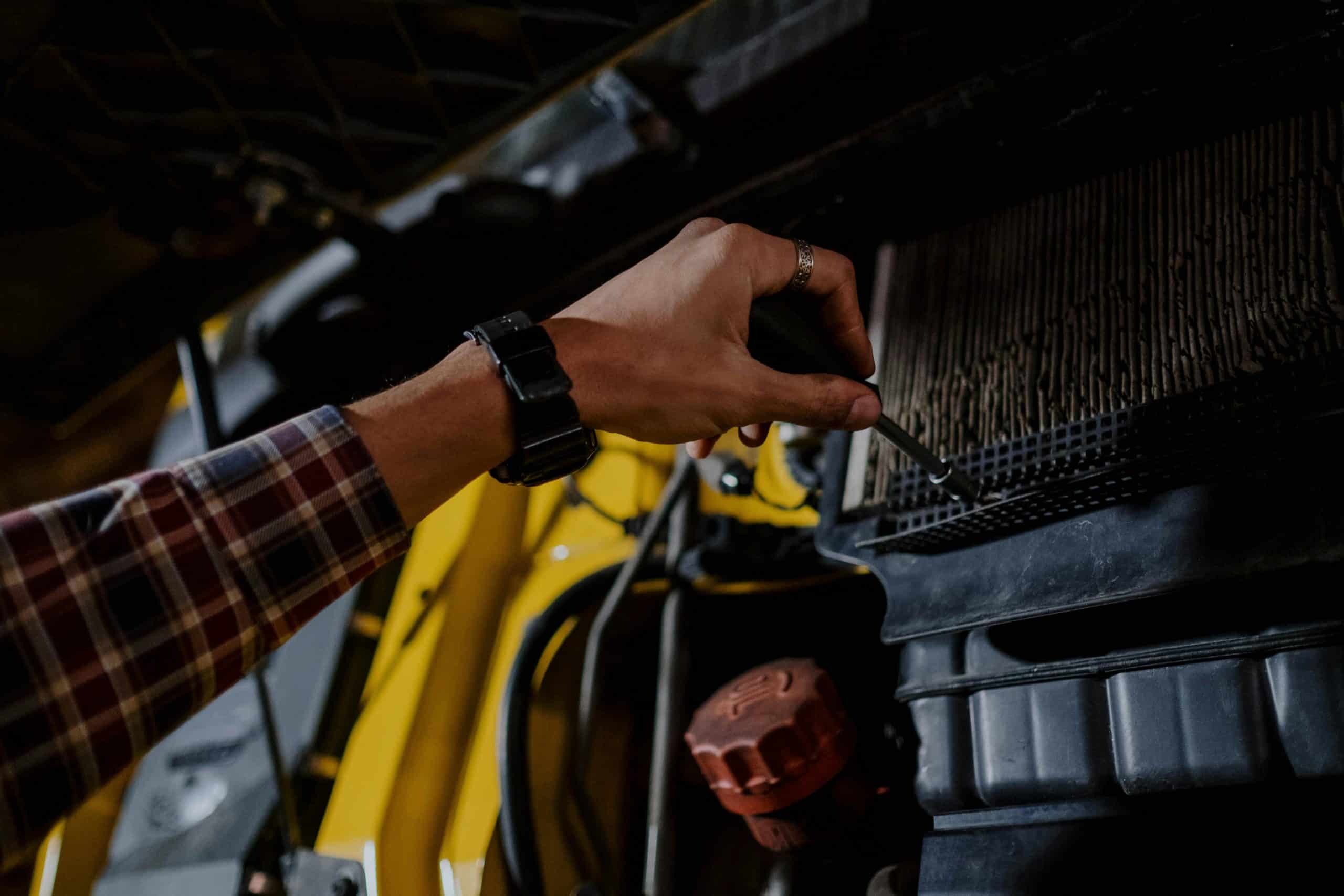Optimizing your air filter system is key to maintaining high-quality air in your home or vehicle, especially during dry UK summers. An efficient air filter system helps to reduce dust intake, ensuring the safety of your respiratory health and the functionality of your equipment. In this piece, you will learn the ins and outs of air filters, their importance in your home and vehicle, and most significantly, how to optimize them for maximum efficiency.
Understanding the Importance of Quality Air Filters
Air filters play an essential role in cleansing the air that circulates in your home and vehicle by trapping particles that can harm both your health and the efficiency of your engine. During dry summers, the levels of dust in the air rise, increasing the need for an optimized, high-quality air filter.
Lire également : What are the most reliable puncture repair kits for sport bikes on UK rough trails?
Air filters essentially work as a sieve, separating dust and other particles from the air before it is recirculated. They contain pleats, which increase the surface area of the filter and the amount of dust, particles, and other contaminants that can be trapped.
The quality of the air filter can significantly impact the overall efficiency of your system. A high-efficiency filter with a large number of pleats will be able to capture more particles and thus maintain a better airflow. High-quality filters also tend to have a high dust holding capacity, which means they don’t need to be replaced as often.
Lire également : What are the top-rated performance mufflers that comply with UK noise regulations for sport bikes?
Evaluating the Current State of Your Air Filter
Before you can optimize your air filter, it’s vital to evaluate its current state. This involves checking its size, shape, and material, as well as its overall condition. Dirt accumulation, particle build-up, and physical damage are all signs that your air filter may need to be replaced.
To maintain optimal airflow, inspect your air filter regularly. If your filter is clogged with dust or other particles, it will restrict the flow of air, which can put unnecessary stress on your engine or HVAC system. Moreover, a dirty filter won’t be able to trap particles as effectively, which could compromise the quality of the air in your space.
The speed at which your filter gets dirty can depend on several factors, including the quality of the air in your area and the amount of dust your system is subjected to. During dry UK summers, you may find that your filter needs to be replaced more frequently.
Selecting the Best Air Filter for Your Needs
Once you’ve assessed the current state of your air filter, the next step is to select the best air filter to suit your needs. There are various types of filters available on the market, each with its pros and cons.
When selecting an air filter, consider factors such as efficiency, size, and dust holding capacity. A filter with a high-efficiency rating will be able to remove a higher percentage of particles from the air. However, keep in mind that high-efficiency filters may restrict airflow if your system isn’t designed to handle them.
Also, pay attention to the filter’s size and shape, as these will determine whether it’s compatible with your system. If you live in a particularly dusty area or have a large system, you may want a filter with a high dust holding capacity.
Optimizing Your Air Filter Setup
Once you’ve chosen the best air filter, the next step is to optimize its setup. This means ensuring it fits correctly in your system and is easy to replace, as well as taking steps to minimize the amount of dust your system is exposed to.
Firstly, ensure your filter fits snugly in your system. If it doesn’t, it could allow unfiltered air to bypass the filter. Secondly, orient the filter correctly. Most filters have an arrow showing the direction of airflow. The arrow should point towards the engine in a vehicle or towards the furnace in a home system.
To minimize the amount of dust your system is exposed to during dry UK summers, you could also consider implementing a pre-filter system. This system sits before the main filter and filters out larger particles, reducing the load on your main filter and extending its lifespan.
Maintaining Your Air Filter for Maximum Efficiency
Proper maintenance is just as important as a good setup in keeping your air filter system working as efficiently as possible. Regular cleaning or replacement prevents the buildup of dust and other particles that could impede airflow and compromise the system’s performance.
How often you need to clean or replace your filter depends on several factors, including the type of filter, the environment, and your personal comfort. As a rule of thumb, check your filter every month. If it’s dirty, clean it if possible or replace it if not.
Remember, air filters play a vital role in maintaining the quality of your air and the efficiency of your system. With proper selection, setup, and maintenance, you can optimize your air filter setup to reduce dust intake during dry UK summers.
Implementing Additional Measures to Further Improve Filtration
Further optimization of your air filtration system can be achieved by implementing additional measures such as installing an air purifier in your home or incorporating a secondary air filter in your vehicle. These measures can substantially improve the separation efficiency of dust particles from the air, promoting a cleaner and healthier environment.
An air purifier is a device that removes contaminants from the air in a room to improve indoor air quality. These devices are commonly marketed as being beneficial to allergy sufferers and asthmatics, and at reducing or eliminating second-hand tobacco smoke. The air purifiers use a system of internal fans to pull the air in your home through a series of filters that remove harmful airborne particles like dust, pollen, and bacteria. The purified air is then circulated back into the room, creating a healthier living environment.
In vehicles, adding a secondary air filter can enhance the performance of the primary air filter, particularly during dry UK summers when dust levels are high. The secondary air filter is typically installed behind the primary one. As the air flows through the system, the larger dust grains are captured by the primary filter, while the secondary filter traps the smaller particles. This dual filtration not only helps extend the life of the primary filter but also improves the overall air flow and efficiency of the system.
An important factor to consider when implementing these additional measures is the pressure drop or flow resistance across the filter bed. This is the difference in air pressure between the two sides of the filter. A higher pressure drop indicates that the filter is capturing particles and doing its job, but it also means that the system must work harder to move air. For this reason, it’s important to strike a balance between filtration efficiency and pressure drop to maintain system efficiency.
Conclusion: Keep an Eye on The Air Quality
Understanding and optimizing your air filter setup, from selection and installation to maintenance, is key to reducing dust intake, especially during dry UK summers. While the primary focus is on preventing health hazards, optimizing the air filter setup also has the added benefit of maintaining efficiency in your HVAC or engine system.
The fight for clean air doesn’t stop at the filter bed, though. It’s equally important to monitor the quality of your indoor air and the air in your vehicle to ensure the measures in place are working effectively. There are a variety of tools available, from quality meters that measure particulate matter to devices that monitor carbon dioxide levels.
To summarize, maintaining high-quality air in your home and vehicle involves more than just the right air filter. It requires a comprehensive approach that includes regular checks, proper maintenance, an efficient air purifier, and potentially a secondary filter for your vehicle. However, these measures, coupled with a high-quality, well-fitted air filter, can significantly reduce dust intake during dry UK summers, protecting your health and the integrity of your systems.
Image Credit: We would like to thank the countless researchers and professionals in the field who provided the essential information and images for this article. Their invaluable work has made it possible for us to understand and manage our air quality better.
Remember, the first step to ensuring clean air is understanding the critical role of air filters. So, take a moment to check your air filter today – it’s the first step towards better air quality.











